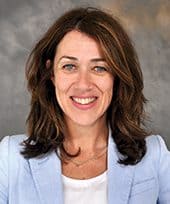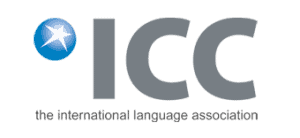Transforming Language Education: Why and how educators might focus on developing learners’ multilingual identity in the languages classroom
Keynote Speaker: Prof Linda Fisher (Professor of Languages Education, Faculty of Education, University of Cambridge)
Abstract
A rise in migration and transnational mobility has led to increased and increasing diversity in the multilingual profile of many classrooms. This has implications not only for the identities of migrant students who are learning the language of their new country, but also for those engaging in language learning in schools. In this talk I explore why a new dimension of pedagogy might be necessary to help all learners to fully understand their own and others’ linguistic repertoires (whether learned in school, at home or in the community) and so to recognise their agency in being able to claim a multilingual identity. I draw on evidence from a series of studies conducted as part of a four-year project (MEITS: Multilingualism: Empowering Individuals, Transforming Societies) involving teachers and over 2,000 students from schools in England. After proposing that multilingual identity is shaped by ‘three Es’ (learners’ experiences with languages and language learning; their evaluations of languages and language learning; and their emotions in relation to languages and language learning), I discuss why this matters for schools. I also introduce an innovative package of identity-based pedagogical resources for primary and secondary classrooms, which has been shown to help students develop their multilingual identity by building knowledge about languages, raising awareness and promoting reflexivity (see wamcam.org). This has important implications for changing attitudes towards languages and multilingualism, encouraging social integration, and creating an inclusive, multilingual school community.
Bio
 Linda Fisher is Professor of Languages Education in the Faculty of Education, University of Cambridge, where she teaches on a number of second language and teacher education programmes. Her research focuses on multilingual identity, creativity, metaphor in relation to belief schemata, second language teacher education, motivation, and the academic and social integration of English as an Additional Language learners. She led on the Multilingual Identity in Language Learning research strand of the Multilingualism: Empowering Individuals, Transforming Societies project (AHRC) and has explored creativity and multilingualism (AHRC large-grant project ‘Creative Multilingualism’). She has published widely in the field of language education and is co-author of Language Development and Social Integration of Students with English as an Additional Language (CUP, 2020), and co-editor (with Wendy Ayres-Bennett) of Multilingual Identity: Interdisciplinary Perspectives (CUP, 2022).
Linda Fisher is Professor of Languages Education in the Faculty of Education, University of Cambridge, where she teaches on a number of second language and teacher education programmes. Her research focuses on multilingual identity, creativity, metaphor in relation to belief schemata, second language teacher education, motivation, and the academic and social integration of English as an Additional Language learners. She led on the Multilingual Identity in Language Learning research strand of the Multilingualism: Empowering Individuals, Transforming Societies project (AHRC) and has explored creativity and multilingualism (AHRC large-grant project ‘Creative Multilingualism’). She has published widely in the field of language education and is co-author of Language Development and Social Integration of Students with English as an Additional Language (CUP, 2020), and co-editor (with Wendy Ayres-Bennett) of Multilingual Identity: Interdisciplinary Perspectives (CUP, 2022).

